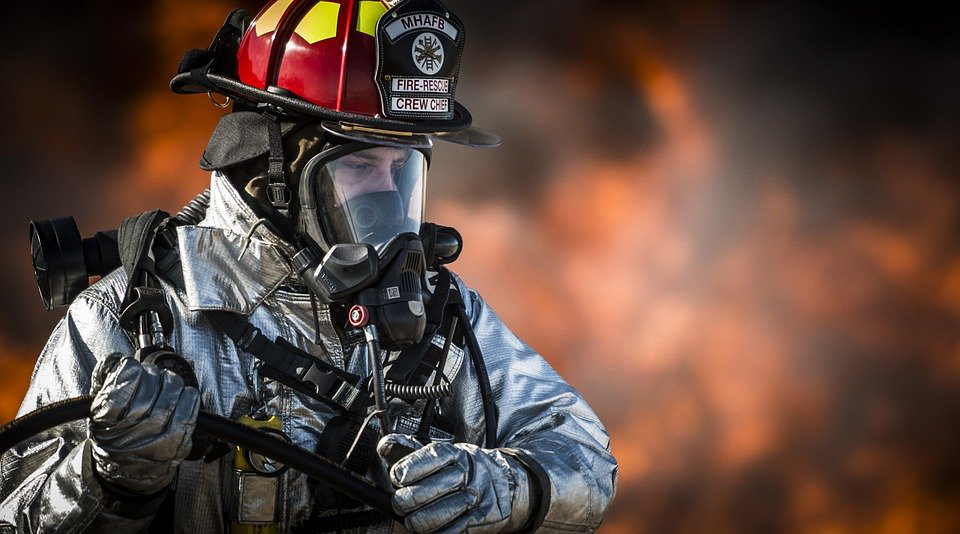
- admin
- July 2, 2020
- 4:14 pm
- No Comments
Firefighter’s Health, Fitness, and Well-Being
Firefighting is probably the riskiest first-responder work there is in the US. From extinguishing fires to aiding extraction efforts in accidents, they often put themselves in danger to save civilians. However, spending on firefighter health and wellness has often been low, and emphasis on wellbeing for firefighters has been very low.
For people preparing for the NYC firefighter exams, and emphasis on staying in a functional space is essential. This means you need to ensure that you’re feeling good about the work you’re doing every step of the way. This job needs serious commitment, and that shouldn’t be taken lightly.
As potential firefighters, you need to ensure you’re mindful of how you feel during your time on the job. If you notice some changes in your physical health, make sure you get checked out. If you’re not fit enough for the job, it’s time to address that in your training and workouts. Similarly, even mental health needs to be noticed and taken care of.
Let’s run through what we know about firefighter wellbeing and how these issues can be addressed, one way or another.
Firefighter Fitness: Why It’s Essential
Like law enforcement and other emergency responders, firefighters need to stay fit and trained to do their job adequately. There are considerable numbers of firefighters that die on the ground due to overexertion. This points us to the fact that several firefighters are not physically equipped to do their job.
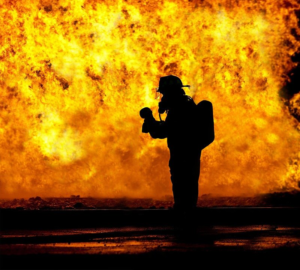 While many firefighters take weight training or bulking up to be their top priority, they often neglect nutrition, cardiovascular fitness, and flexibility. The kind of dynamic, fast-paced work that firefighters end up doing requires holistic personal fitness rather than the ability to lift weights.
While many firefighters take weight training or bulking up to be their top priority, they often neglect nutrition, cardiovascular fitness, and flexibility. The kind of dynamic, fast-paced work that firefighters end up doing requires holistic personal fitness rather than the ability to lift weights.
Ensure that your workout and training regimen includes cardio training and stretching and yoga for flexibility. Some level of gymnastic skill in terms of climbing or jumping can also come in handy. All of these regimens need to work in co-operation with a full diet that also includes plenty of plant-based nutrition to keep the nervous and immune system working correctly.
Firefighting Health
Health Concerns
Firefighting can lead to exposure to many risky materials and situations. The risks that come with fire, such as burns and soot or smoke inhalation, are often adequately addressed. However, they can also get exposure to asbestos, contaminants that can cause cancer and other kinds of substances that can harm their health.
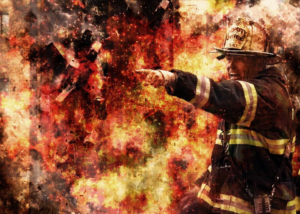 Moreover, being in spaces that can collapse, explode, or crumble dramatically increases the risk of injury and disability in the line of work. There’s even been an acknowledgment that the effects of sleep deprivation for firefighters can lead to poor decision making and increased injury on the job.
Moreover, being in spaces that can collapse, explode, or crumble dramatically increases the risk of injury and disability in the line of work. There’s even been an acknowledgment that the effects of sleep deprivation for firefighters can lead to poor decision making and increased injury on the job.
Preventing Health Issues
Although firefighters wear protective clothing and breathing gear, these usually protect them from carcinogenic exposure during fires. A lack of proper training means that many stations don’t know that they should be cleaning off all the equipment after a fire because residue can remain on these surfaces and cause repeated exposure.
Firefighters should also get regular checkups and run tests for all kinds of diseases, including heart and lung disease. Prolonged exposure to fire can damage vital organs over the years.
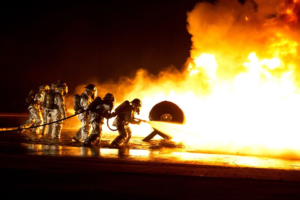 Shifts must be organized to ensure adequate sleep for all members of the force. The consistent sleep deprivation that many firefighters face can mean increased risk for colon cancer, Type 2 diabetes, dementia, and heart disease.
Shifts must be organized to ensure adequate sleep for all members of the force. The consistent sleep deprivation that many firefighters face can mean increased risk for colon cancer, Type 2 diabetes, dementia, and heart disease.
Mental Wellbeing in Firefighting
Mental wellness is just as essential for firefighters as other kinds of health. On-the-job firefighter training often neglects mental wellness as an essential skill. Many members of the force are also inducted into the culture of silence that permeates most workplaces.
However, what needs to be understood is that people who consistently work in traumatic circumstances such as law enforcement, firefighters, EMTs, and even social workers need support for mental health on the job.
This support means enabling conversations about mental health at work and ensuring that concerns are acknowledged. Firefighters need to be able to feel and process their emotions openly instead of being forced to stay silent about it.
Common Mental Health Challenges
Firefighters are more at risk for mental health issues such as PTSD, generalized anxiety, and depression. These concerns are especially important in light of the higher rates of suicide in the force.
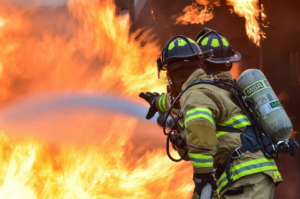 The core issues of trauma and depression can lead to substance abuse, as well. This means that without an emphasis on dealing with mental health, not only are firefighters going to suffer, but they will also be unprepared.
The core issues of trauma and depression can lead to substance abuse, as well. This means that without an emphasis on dealing with mental health, not only are firefighters going to suffer, but they will also be unprepared.
Getting Professional Help
Getting professional help can be difficult because of the courage it takes to open up to someone. However, cognitive-behavioral therapy has been effective at dealing with PTSD when done consistently and with commitment.
Techniques such as stress inoculation, cognitive processing, and prolonged exposure are all ways that therapists can help people move past their trauma. In the case that there are other mental health concerns beyond trauma, medication, or sobriety programs can be in order.
The Fire Department of New York’s (FDNY) mental health support initiative has been two-pronged. First, they’ve set up a Counseling Services Unit (CSU) so that employees of the fire department may get counseling for their issues. These services even apply to retired officers.
The other program they’ve launched is the peer counseling initiative. This works by having experienced firefighters visit those officers that have been observed to be dealing with difficult issues. By fostering an open relationship with a peer counselor, firefighters tend to open up faster about their issues.
How Wellness Can Become An Essential Part of Firefighter Training
At Civil Service Success, the NYC firefighter preparation classes focus on the syllabi of the exam and the valuable skills you’ll need on the job. We hire retired officers to prepare our applicants for all the civil service exams, which means that the people training future members of the firefighting force have been through it all.
Take advantage of these moments and allow the senior officers in the room to tell you how they’ve spent their career taking care of their health, fitness, and wellness.

